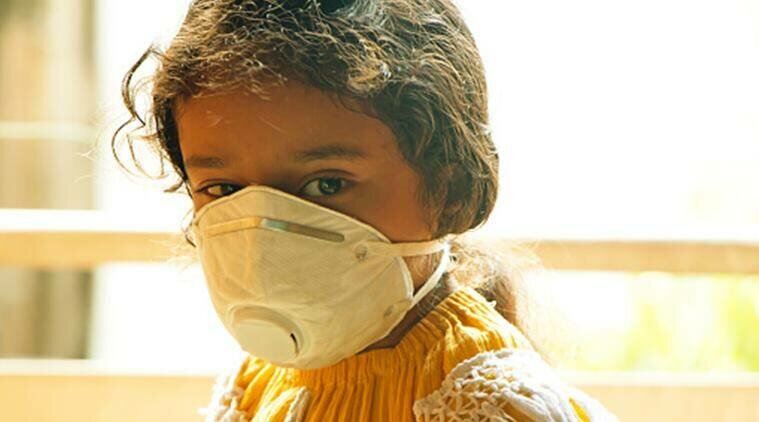Protect our Child from air pollution

How to protect our newborns from air pollution
Air pollution simply put, means the presence of harmful gases and particles in the air, which on being inhaled, cause tremendous health hazards. The most vulnerable group of those affected are children, pregnant and lactating women and most of all our neonates. Babies and children are most vulnerable to the ill effects of air pollution as their lungs are still growing and developing. The most at – risk babies are those who are preterm and low birth weight babies.
State of Global Air 2020 report released on October 21, giving a comprehensive analysis of air pollution’s global impact on new-borns, has reported that about 116,000 infants in India succumb within the first month of being born, due to air pollution with more than half of the infant deaths resulting due to inhalation of PM 2.5 (particulate matter). Air pollution could mean indoor as well as outdoor pollution, not to forget your car. In order to protect our babies from the ill effects of air pollution, one has to understand what the sources of this pollution are, and what ill effects they have, to understand the urgency and emergency of tackling this menace.
Outdoor pollution is largely due to traffic, building materials in construction and stubble burning, coal-burning power plants, industrial activities, waste burning, and many other human and natural sources. Indoor pollution is due to the chemicals which we use to clean our homes, room fresheners, and other perfumed things like burning scented candles and incense sticks. How we cook at home is another major factor contributing to poor quality of indoor air. Thus, using charcoal, chulha, barbeques, stoves are sources which pollute indoor air. Smoking is yet another major factor for indoor air pollution.

What steps can we take to protect our babies against air pollution?
Here are a few tips for parents:
Checking indoor pollution:
- Strictly avoid smoking as well as passive smoking during pregnancy
- Improving the cooking method at home and avoiding charcoal, chulha, wood and dung etc.
- keep your home well ventilated and aired
- Avoid perfumed products like room fresheners and scented candles
- Avoid carpets and wall carpets
- Avoid furry toys
- Avoid cosmetics and perfumes at homes
- Cut down your exposure to household chemicals
For Outdoor pollution:
- Avoid travelling in peak traffic hours
- Avoid taking a walk with your baby at times of smog and heavy traffic
- Try to use car pools
- A strict no to stubble burning
For your car:
- Do not use chemicals like car fresheners
- No smoking in the car
- Clean the car regularly and maintain good hygiene
I am sure that we have understood the great harm that air pollution can do to our babies and we unite in our efforts both at level of individual, family and as society to keep our air clean so that our babies can breathe free.